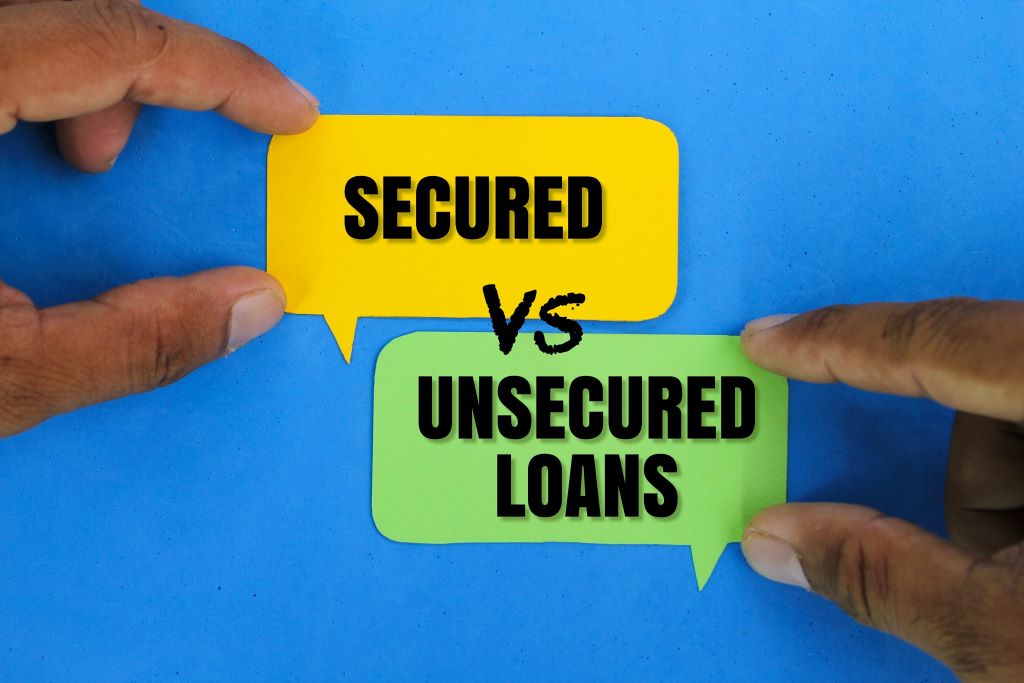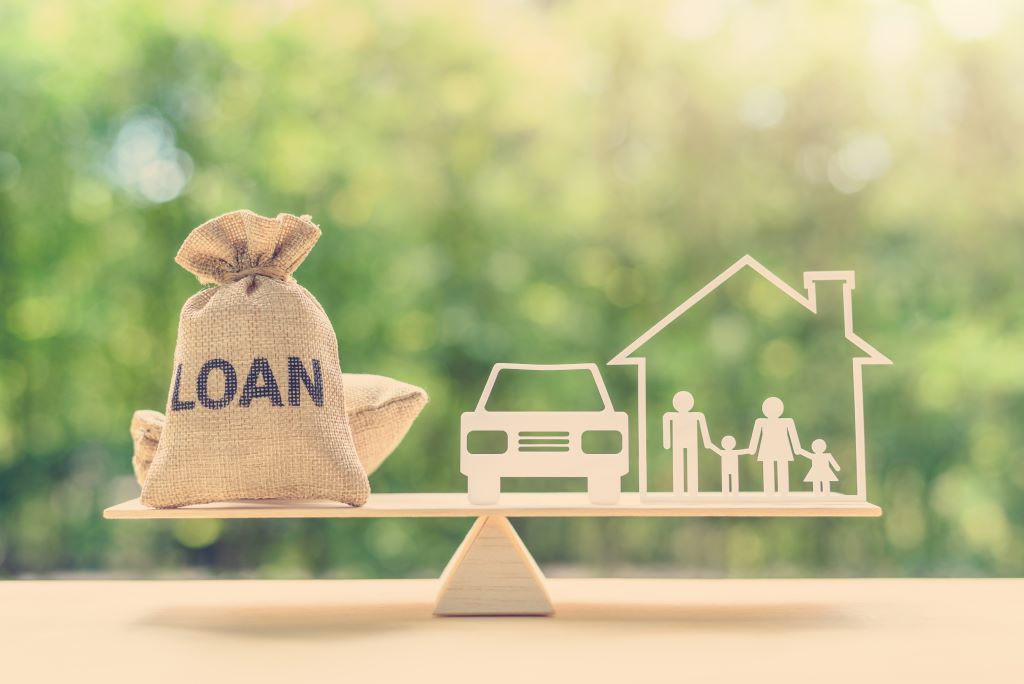
When you need financial assistance, loans can be a helpful option. But it’s important to first understand the different types of loans available, so you can make the best decision for yourself. Two common options include unsecured loans and secured loans. Both options have clear characteristics, benefits, and things to consider, as we’ll get into later. In this article, we’ll explore the differences and advantages of each to help you choose the right option for your needs.
What is an Unsecured Loan?
Unsecured loans are not backed by collateral, such as a car or property. Instead, lenders approve these loans based on your creditworthiness, income, and other financial factors.
How Do Unsecured Loans Work?
Unsecured loans work by providing funds to borrowers without requiring collateral. When you apply for an unsecured loan, if approved, you’ll often receive a lump sum up front. You’ll then need to repay this amount in regular installments over a set period, typically with interest.
What are the Advantages and Disadvantages of Unsecured Loans?
When researching the best personal loans, it’s important to be aware of the advantages and disadvantages. Keep the following in mind when weighing your options:
- No Collateral Required: Since you don’t need collateral to apply for an unsecured loan, you generally won’t risk losing your assets if you default on the loan. However, you’ll still be obligated to repay the loan.
- Quick Approval: Unsecured loans typically have a faster approval process. This is because there’s no need for appraisal or assessment of collateral.
- Flexibility: You can use the funds for many purposes, such as home improvements or unexpected expenses.
- Build Credit: Timely repayment of an unsecured loan can help improve your credit profile. Over time, this can make it easier to qualify for future loans.
- Fixed Interest Rates: Most unsecured loans have fixed interest rates. This can help make it easier to budget for monthly payments.
- Higher Interest Rates: Unsecured loans can come with higher interest rates compared to secured loans, so they’re typically better for short-term financial situations.
How Can I Get an Unsecured Loan with Bad Credit?
Getting an unsecured loan with bad credit can be challenging but not impossible. Luckily, there are a couple of options available. These options include improving your credit score or exploring alternative lenders that offer more choices for people with bad credit. While traditional lenders like banks and credit unions may not want to lend to those with bad credit, Cash Factory USA might be able to help. You can read all about Cash Factory USA on our Trust Pilot page, where we have an excellent Trust Pilot rating from real customers, just like you.* For more helpful tips on unsecured personal loans with bad credit, check out our blog post here.

Online Unsecured Loans from Cash Factory USA
When you choose to do business with Cash Factory USA, you’ll experience an easy application process. Our application is simple, straightforward, and fast! Our approval process is also quick and is typically completed the same day, often within minutes. Once approved, we fund our loans quickly with a deposit to your checking account typically by the next business day.* Your loan approval and amount is based on your qualifications and any laws your state may have in place governing loans. Remember, if you have bad credit, you could still qualify for a loan. Check out our rates and terms to learn more about the guidelines in your state. You can also check back often to find more options for unsecured loans and other loans for people with bad credit.
Now that you’re up to speed on unsecured loans, let’s cover how secured loans compare.
What is a Secured Loan and How Do They Work?
Unlike unsecured loans, secured loans are backed by collateral. This can be a valuable asset such as a car, home, or savings account. The collateral acts as security for the lender, reducing the risk of the loan. If the borrower fails to repay the loan, the lender can take possession of the collateral to recover the amount owed.

What Can Be Used as Collateral for a Secured Loan?
Common types of collateral for secured loans include real estate (such as a home), vehicles (such as a car), savings accounts, or other valuable assets.
What Are the Typical Requirements for a Secured Loan?
Requirements for a secured loan can vary by lender. Generally, the requirements include a valuable asset to use as collateral, a good credit score, stable income, and the ability to repay the loan.
What are the Advantages and Disadvantages of Secured Loans?
When researching the best personal loans, it’s important to be aware of the advantages and disadvantages. Keep the following in mind when weighing your options:
- Lower Interest Rates: Secured loans typically have lower interest rates than unsecured loans. This is because the collateral reduces the lender’s risk.
- Higher Loan Amounts: Because of the collateral, lenders may be willing to offer higher loan amounts.
- Easier Approval: Secured loans can sometimes be easier to qualify for, even with less-than-perfect credit. This is because the collateral provides security for the lender.
- Longer Repayment Terms: Secured loans may offer longer repayment terms. This can make monthly payments more manageable for some.
- Risk of Losing Your Collateral: The main risk of secured loans is the potential loss of collateral if you default on the loan. This is why it’s crucial to make timely payments to avoid this risk.
Can I Lose My Collateral If I Default on a Secured Loan?
Yes, if you default on a secured loan, the lender customarily has the right to take the collateral used to secure the loan to recover the amount you owe.
Unsecured Loans vs. Secured Loans
In summary, both unsecured and secured loans have their advantages and things to consider. Unsecured loans can offer quick approval, flexibility, and no risk to your assets. On the other hand, secured loans may provide lower interest rates, higher loan amounts, and easier approval, but with the risk of losing an asset.
When deciding between the two, consider your financial situation, credit score, and the purpose of the loan. Think about the risks and benefits carefully to make the best choice for your needs. If you’re unsure, speak with a financial advisor who can provide personalized advice based on your circumstances.
If you want more information about unsecured installment loans, check out our blog post, Installment Loans 101: Helpful Details to Know.
*Not all applications are approved, subject to eligibility. Loan amounts and funding times will vary. High-interest loans can be expensive and should be used only for short-term financial needs, not long-term solutions. Customers with credit difficulties should seek credit counseling. The opinions expressed above are solely the author’s views and may or may not reflect the opinions and beliefs of the website or its affiliates. Cash Factory USA does not provide financial advice.
This blog contains links to other third-party websites that are not endorsed by, directly affiliated with, or sponsored by Cash Factory USA. Such links are only for the convenience of the reader, user, or browser.